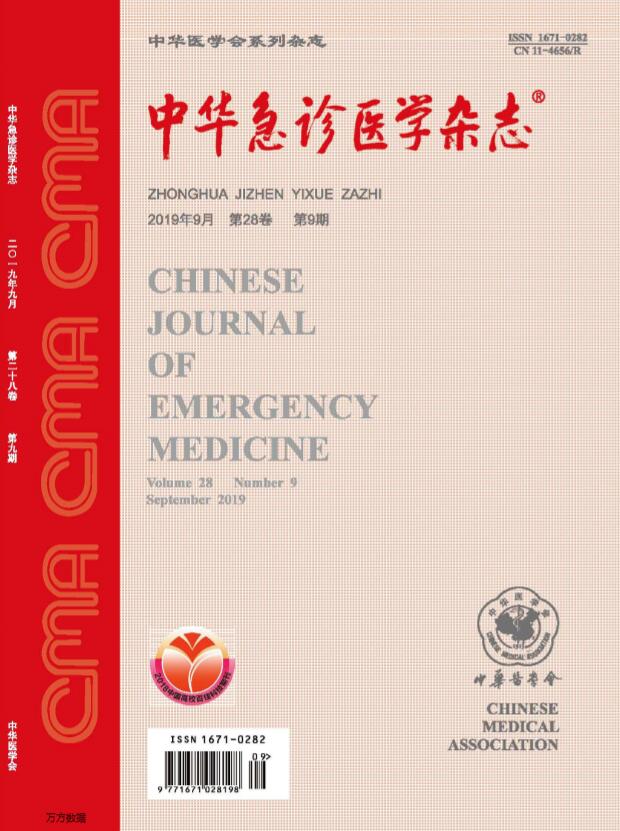Randomized controlled study of immune nutrition in patients with acute stress
Q4 Nursing
引用次数: 0
Abstract
Objective To explore the effects of immune-enhanced enteral nutrition support on the clinical outcome and nutritional status of patients with acute stress. Methods From December 2014 to August 2015, 120 patients with acute stress were enrolled in this study in the First Affiliated Hospital of Zhengzhou University. The patients were randomly divided into the control group and the experimental group, 60 cases in each group. Besides of medical treatment, the control group received routine enteral nutrition, while the experimental group received immune-enhanced nutrition for 8 days. The main parameters related to nutritional status, immune function, blood glucose, infection control of patients were collected. Results No significance of parameters listed above were observed between patients in the two groups at baseline. After intervention, the levels of prealbumin and lymphocyte counts in the experimental group were higher than those in the control group [(162.5±29.7) mg/L and (136.6±15.1) mg/L, (1.86±0.9) ×109/L and (1.45±0.710) ×109/L, P=0.021 and P=0.012]. The levels of C-reactive protein in the experimental group were lower than those in the control group [ (47.2±22.1) mg/L and (82.6±13.4) mg/L, P=0.043]. Moreover, the level of blood glucose in the experimental group was lower than that in the control group [(5.4±1.7) mmol/L and (6.6±3.5) mmol/L, P=0.009]. The patients in the experimental group had better intestinal tolerance (8.3% vs 25%, P=0.014) but lower mortality (6.7% vs 20%, P=0.032) than those in the control group. Conclusions Immune-enhanced enteral nutrition can reduce level of blood glucose and alleviate inflammatory responses of patients with acute stress, thus improving intestinal tolerance, and reducing mortality. Key words: Immune-enhanced enteral nutrition; Acute stress; Inflammation急性应激患者免疫营养的随机对照研究
目的探讨免疫增强肠内营养支持对急性应激患者临床转归及营养状况的影响。方法选取2014年12月至2015年8月郑州大学第一附属医院120例急性应激患者为研究对象。将患者随机分为对照组和实验组,每组60例。在药物治疗的基础上,对照组给予常规肠内营养,实验组给予免疫增强营养,持续8 d。收集患者的营养状况、免疫功能、血糖、感染控制等主要指标。结果两组患者在基线时上述参数均无显著性差异。干预后,实验组前白蛋白水平和淋巴细胞计数均高于对照组[(162.5±29.7)mg/L和(136.6±15.1)mg/L,(1.86±0.9)×109/L和(1.45±0.710)×109/L, P=0.021和P=0.012]。实验组c反应蛋白水平低于对照组[(47.2±22.1)mg/L和(82.6±13.4)mg/L, P=0.043]。实验组血糖水平低于对照组[(5.4±1.7)mmol/L和(6.6±3.5)mmol/L, P=0.009]。实验组患者肠道耐受性较对照组好(8.3% vs 25%, P=0.014),死亡率较对照组低(6.7% vs 20%, P=0.032)。结论免疫增强肠内营养可降低急性应激患者的血糖水平,减轻炎症反应,从而提高肠道耐受性,降低死亡率。关键词:免疫增强肠内营养;急性应激;炎症
本文章由计算机程序翻译,如有差异,请以英文原文为准。
求助全文
约1分钟内获得全文
求助全文
来源期刊

中华急诊医学杂志
Nursing-Emergency Nursing
CiteScore
0.10
自引率
0.00%
发文量
8629
期刊介绍:
Chinese Journal of Emergency Medicine is the only national journal which represents the development of emergency medicine in China. The journal is supervised by China Association of Science and Technology, sponsored by Chinese Medical Association, and co-sponsored by Zhejiang University. The journal publishes original research articles dealing with all aspects of clinical practice and research in emergency medicine. The columns include Pre-Hospital Rescue, Emergency Care, Trauma, Resuscitation, Poisoning, Disaster Medicine, Continuing Education, etc. It has a wide coverage in China, and builds up communication with Hong Kong, Macao, Taiwan and international emergency medicine circles.
 求助内容:
求助内容: 应助结果提醒方式:
应助结果提醒方式:


